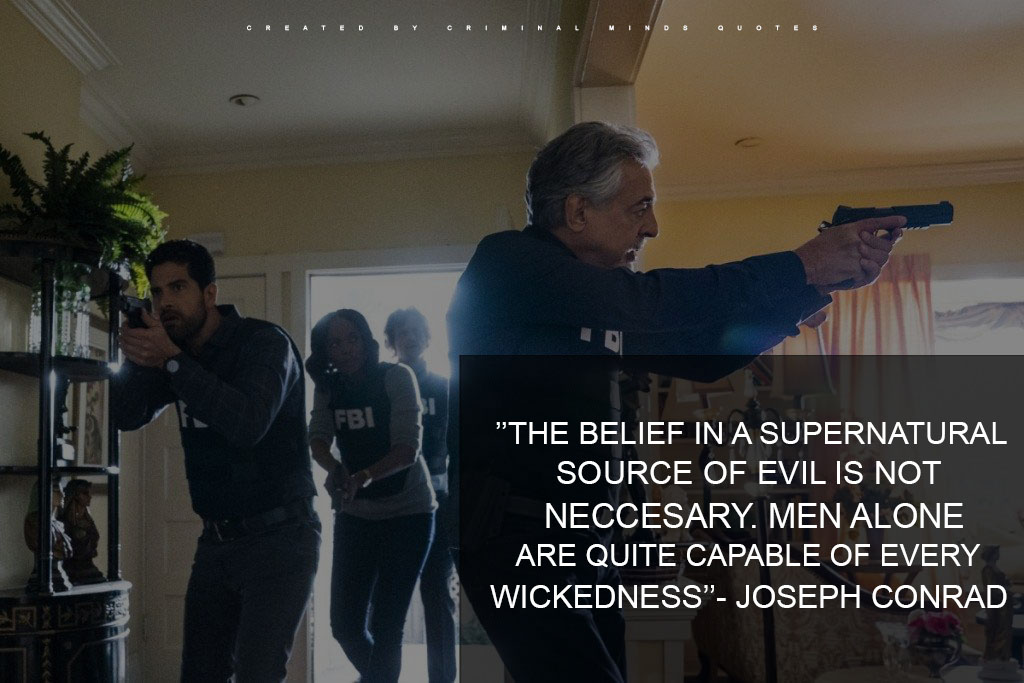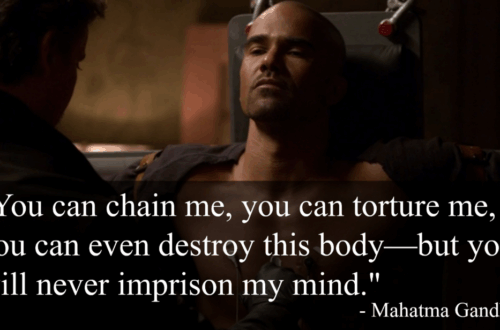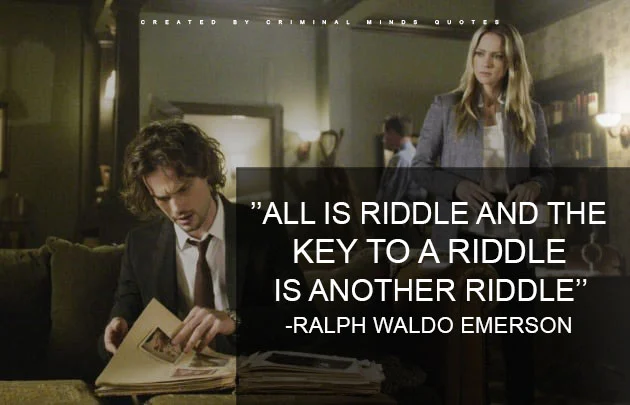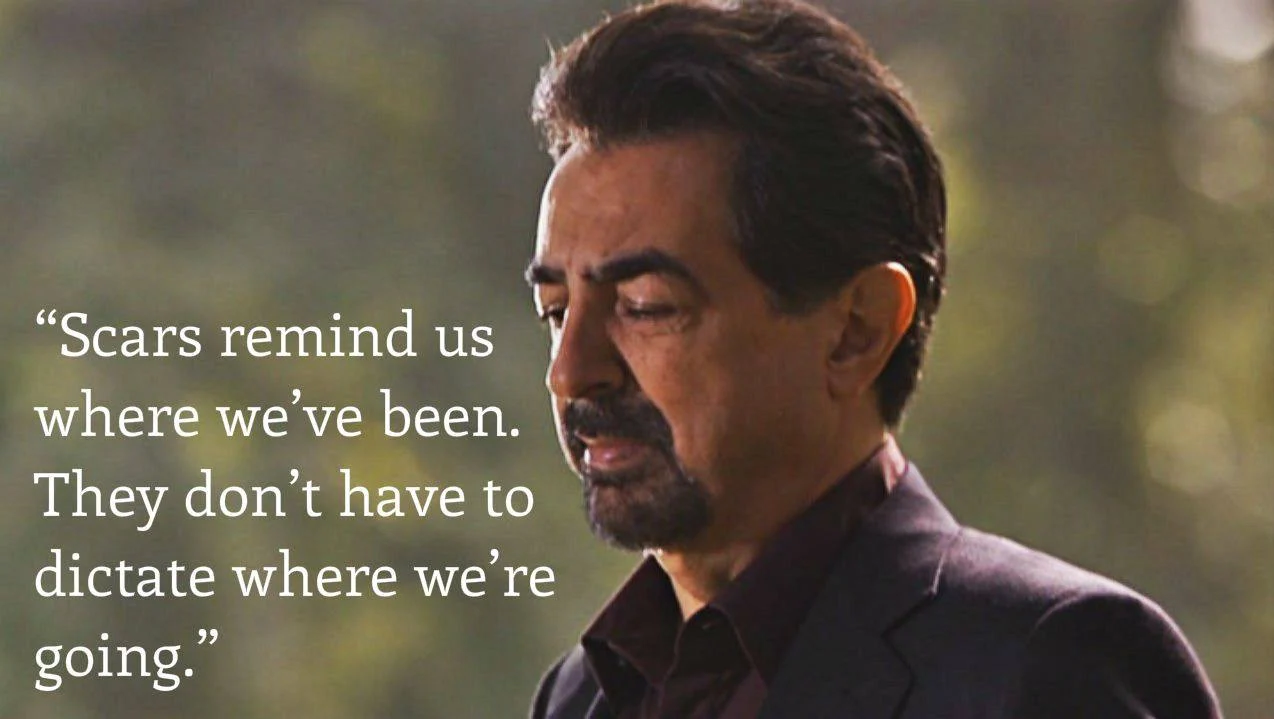The Psychology Behind Criminal Minds’ Most Chilling Quotes (And Why They Still Haunt Us)
If you’re anything like me, you can’t hear “The oldest and strongest emotion of mankind is fear…” without getting chills. For 15 seasons, Criminal Minds didn’t just give us crime procedurals – it gave us a masterclass in psychological storytelling through its iconic opening and closing quotes.
But here’s what most fans miss: those literary snippets weren’t just atmospheric fluff. They were secret psychological breadcrumbs leading us straight into the minds of both killers and profilers. Let’s break down why these quotes still mess with our heads years later.
The Show’s Genius Literary Trick
Criminal Minds played a sneaky game with us. By opening with quotes like:
“Monsters are real, and ghosts are real too. They live inside us.”
— Stephen King (S3E4)
…the writers were essentially whispering: “The unsub isn’t some mythical creature – he’s the guy bagging your groceries.” This grounded approach made the horrors more terrifying because they were possible.
Fun Fact: The most quoted authors (Nietzsche, Faulkner, Conrad) all specialized in exploring humanity’s dark corners – exactly what the BAU does every episode.
Quotes That Secretly Profiled THE TEAM
Here’s what blew my mind rewatching – the quotes often revealed more about our profilers than the killers:
- Hotch’s Breaking Point: That chilling Nietzsche quote in “100” (S5E9) about neutrality in moral crises? Foreshadowed his later violent confrontation with Foyet.
- Reid’s Trauma: Episodes quoting Milton (“The mind is its own place…”) frequently coincided with Reid’s mental health struggles.
- Garcia’s Armor: Her quirky quotes (like S6E6’s “Give a girl the right shoes…”) were emotional armor against the darkness she faced daily.
(Personal take: The writers were low-key using these quotes as psychological Easter eggs for character arcs.)
The 3 Quote Types That Defined Criminal Minds
After analyzing all 324 episodes (yes, I have a problem), patterns emerged:
- The Gut Punch
“A sad soul can kill you quicker than a germ” (S5E11) – delivered right before child victim cases. These quotes weaponized our empathy. - The Bait-and-Switch
Sweet quotes like “Hope is the thing with feathers” (S10E14) often preceded the darkest episodes. Psychological warfare at its finest. - The Full Circle
Finale quotes mirroring earlier seasons (like Burke’s “good men” in S1 and S15) showed how the team changed… and what stayed painfully the same.
Why We Can’t Shake These Quotes
Science explains our obsession:
- The Priming Effect: Hearing “All that glisters is not gold” before a case subconsciously made us question every character’s motives.
- Cognitive Dissonance: Beautiful poetry over crime scene visuals created unease that lingered for hours.
Case Study: That Bhagavad Gita nuclear quote in “A Thousand Suns” (S10E3)? More viewers Googled it after the episode than any other quote – proving the show educated while it terrified.
Your Turn: The Ultimate Criminal Minds Quote Test
Which type affects you most?
🔪 “The irrationality of a thing is no argument against its existence” (Nietzsche)
💔 “Grief is the price we pay for love” (Queen Elizabeth II)
🕵️ “The truth is rarely pure and never simple” (Wilde)
Drop your answer in the comments – and which quote still keeps you up at night. For me? S7’s “Fairy tales tell children dragons can be killed” lives in my head permanently.
(P.S. Want a deep dive on a specific season’s quotes? Let me know – my Netflix is always paused on Criminal Minds anyway.)
Why This Matters Now
In an era of true crime saturation, Criminal Minds taught us to look beyond “how” and ask “why” – and those opening quotes were the first clue. They transformed crime entertainment into psychological literature, making us active participants in the profiling process.
So next time you hear “The past is never dead…”, remember: you’re not just watching a show. You’re being inducted into the BAU’s book club from hell.
“How the BAU’s Case-Opening Quotes Reveal the Show’s Darkest Truths About Evil, Justice, and Human Nature”
The BAU’s Literary DNA
Unlike other crime dramas, Criminal Minds weaponized literature to profile the human soul. Across 15 seasons, the show used quotes from:
- Friedrich Nietzsche (12 episodes) to explore morality
- William Faulkner (9 episodes) to examine haunting pasts
- Joseph Conrad (7 episodes) to expose human darkness
(Pro Tip: The most quoted sources appear in episodes about institutional evil or team trauma.)
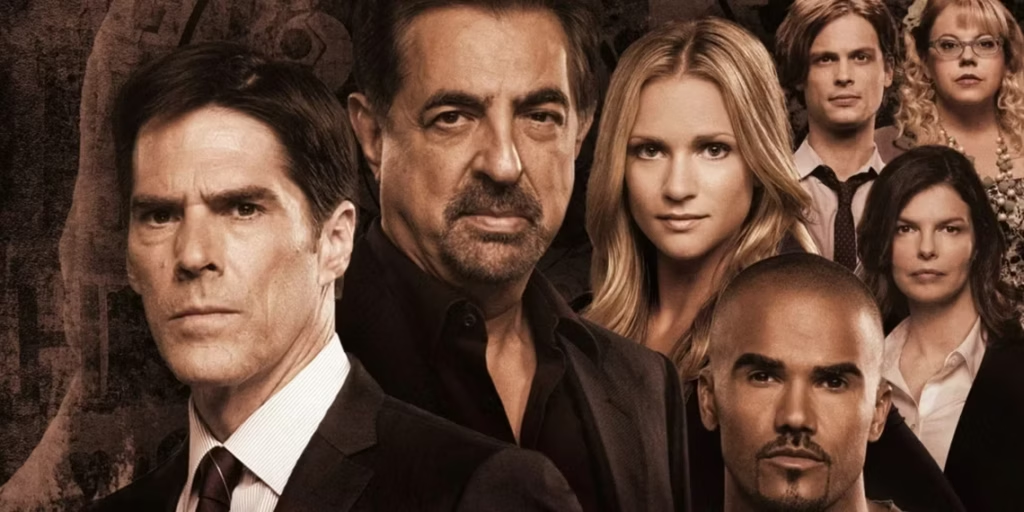
5 Dark Truths the Quotes Reveal
1. Evil Isn’t Supernatural—It’s Human
“The belief in a supernatural source of evil is not necessary. Men alone are quite capable of every wickedness.”
— Joseph Conrad (S3E2)
- Key Episode: “To Hell… And Back” (S4 finale) where the team confronts a brotherhood of killers
2. Profiling Is a Moral Minefield
“When you look into the abyss, the abyss also looks into you.”
— Nietzsche (S3E5)
- Proof: Hotch’s breakdown after Foyet (S5), Reid’s prison arc (S12)
3. Family Is Chosen, Not Inherited
“The bond that links your true family is not one of blood, but of respect and joy in each other’s life.”
— Richard Bach (S6E2)
- Tearjerker Moment: Garcia’s “I’m your family now” to Morgan (S11)
4. Justice Requires Imperfect Compromises
“Laws are spider webs through which the big flies pass and the little ones get caught.”
— Honoré de Balzac (S11E4)
- Controversy: The team frequently bends rules (e.g., S7’s illegal search in “Profiling 101”)
5. The Past Never Dies
“The past is never dead. It’s not even past.”
— Faulkner (S6E3)
- Best Example: Rossi’s cold case obsession (S8’s “The Fallen”)
Most Iconic Quote Pairings
| Episode | Opening Quote | Closing Quote |
|---|---|---|
| S5E10 “The Slave of Duty” | “Duty is the sublimest word…” | “The price of greatness is responsibility.” |
| S12E18 “Hell’s Kitchen” | “The hottest places in hell…” | “Good men doing nothing” callback |
(Fun Fact: Dante’s Inferno quotes appear in 6 episodes about serial killers with god complexes.)
Why These Quotes Haunt Us
The genius of Criminal Minds was making viewers complicit:
- Psychological Hook: Quoting Shakespeare before showing a crime scene (“All that glisters is not gold” in S7’s “Proof”) forces us to question appearances
- Character Mirrors: Unsubs often embody the episode’s quote (e.g., S9’s “Strange Fruit” killer vs. Abel Meeropol’s lynching poem)
The Final Lesson
The series ends as it began—with Edmund Burke’s warning:
“All that is necessary for evil to triumph is for good men to do nothing.”
— S15E10 “And in the End…”
Mic Drop Moment: The BAU’s last quote wasn’t about catching killers—it was about the burden of choosing to fight at all.
Now if you’ll excuse me, I need to go rewatch “Profiler, Profiled” for the 14th time…

